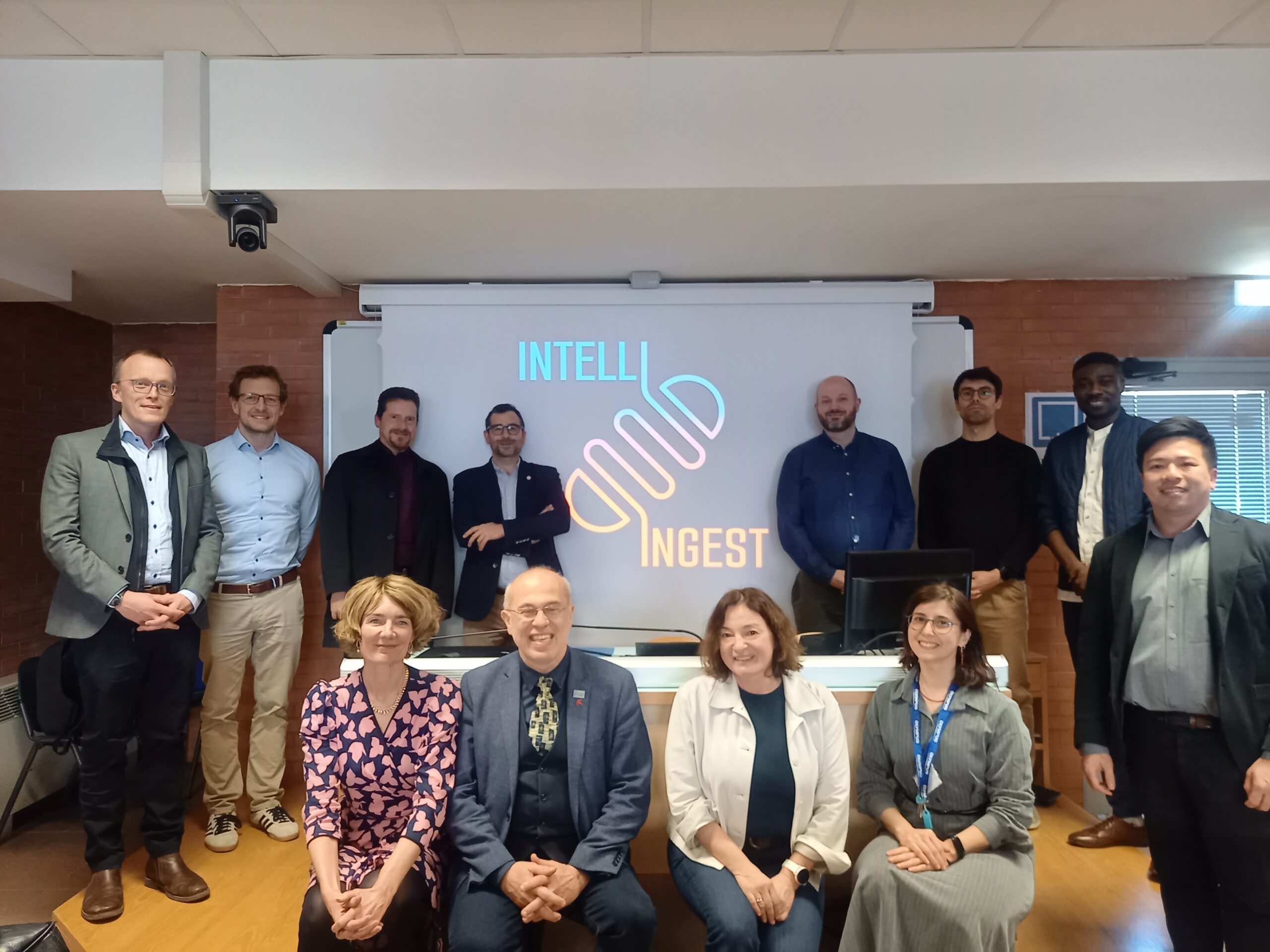
INTELLI-INGEST
The INTELLI-INGEST Doctoral Network will train 13 researchers in the development of minimally invasive, orally delivered miniaturised devices.
Intelli-Ingest
The INTELLI-INGEST Consortium brings together leading universities, research institutes, hospitals, and industry partners across Europe to train a new generation of experts in smart ingestible medical devices. Aligned with the goals of the Marie Skłodowska-Curie Doctoral Networks, its key purpose is to deliver world-class, interdisciplinary research training that equips doctoral candidates with the scientific, technical, and transferable skills needed to drive innovation in healthcare, accelerate clinical translation, and build impactful careers across academia, industry, and the public sector.

Challenges
INTELLI-INGEST’s scientific objectives are advancing localisation and actuation, enhancing diagnostic and therapeutic capabilities, promoting sustainability, and developing translational testing tools for ingestible medical devices. By tackling these challenges, the 13 doctoral candidates gain cutting-edge expertise, hands-on experience with clinically relevant technologies, and access to innovative tools that strengthen their future careers in academia, industry, and healthcare innovation.

Localisation and Actuation
INTELLI-INGEST aims to improve how accurately we can locate ingestible devices inside the gastrointestinal (GI) tract and enable them to interact with tissues using new actuation systems. This includes developing technologies that help track device movement and orientation precisely, supporting better navigation and targeted interventions.
Advanced Diagnostics and Therapeutics
The project seeks to enhance the ability of ingestible devices to detect and treat diseases without needing extra procedures. This includes combining sensors, imaging, and AI to identify pathology and deliver treatments directly at the site, making diagnosis and therapy more efficient and patient-friendly
Sustainability
INTELLI-INGEST addresses the environmental impact of single-use ingestible medical devices by developing more sustainable alternatives. These include printed electronics and battery-free systems that reduce waste, promote recyclability, and lower the carbon footprint of device manufacturing and disposal.
Translational Tools to Advance Innovation
To reduce reliance on animal testing and speed up the development of new devices, Intelli-Ingest is creating advanced physical and virtual simulators that mimic the human GI tract. These tools will support more ethical, efficient, and cost-effective ways to test and validate new medical technologies.
News
-

INTELLI-INGEST Kick-Off meeting
Marked the official kick-off meeting of the MSCA Doctoral Training Network “INTELLI-INGEST”, hosted at…

Funding scheme: This research has received funding from the European Union’s Horizon Europe research and innovation programme under the Marie Skłodowska-Curie Actions Doctoral Network INTELLI-INGEST Grant Agreement N° 101169012 and the UKRI Horizon Europe Guarantee under Grant Agreement EP/U536726/1
